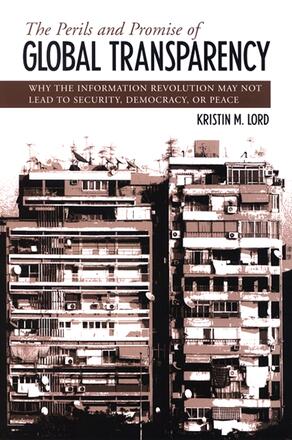
The Perils and Promise of Global Transparency
Why the Information Revolution May Not Lead to Security, Democracy, or Peace
Alternative formats available from:
Argues that increasing levels of transparency do not always change international politics for the better.
Description
While the trend toward greater transparency will bring many benefits, Kristin M. Lord argues that predictions that it will lead inevitably to peace, understanding, and democracy are wrong. The conventional view is of authoritarian governments losing control over information thanks to technology, the media, and international organizations, but there is a darker side, one in which some of the same forces spread hatred, conflict, and lies. In this book, Lord discusses the complex implications of growing transparency, paying particular attention to the circumstances under which transparency's effects are negative. Case studies of the 1994 genocide in Rwanda and the government of Singapore's successful control of information are included.
Kristin M. Lord is Assistant Professor of Political Science and International Affairs at The George Washington University's Elliott School of International Affairs. She is the coeditor (with Bernard I. Finel) of Power and Conflict in the Age of Transparency.